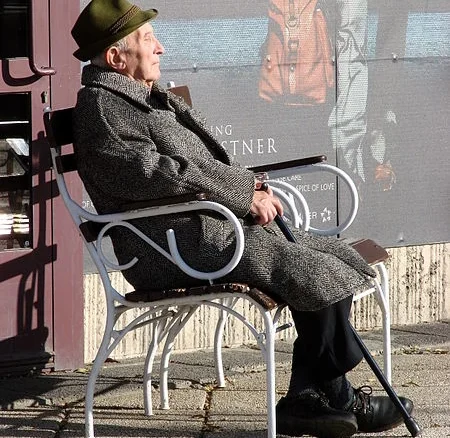Every year, millions of senior citizens fall due to several reasons, but only a few of them tell their doctor. They can fall anywhere, in their home or outside of their home. It may cause senior citizens to avoid various day to day activities such as walking, shopping, and attending family functions. Senior citizens are more vulnerable to serious injury from falling than adults or children. Falls can lead to cuts, hip fractures, and even catastrophic head and brain traumas in senior citizens. Still, they don’t have to live their life in the terror of falling.
As senior citizens spend most of their time inside the home, they can follow my tips to minimize their risk of falls at their homes. In this blog, I’ll share the best strategies for the prevention of domestic falls in senior citizens. Before looking at the fall prevention tips, let’s look at some common causes that lead senior citizens to fall.
Most Common Reasons For The Falls Of Senior Citizens
Our bodies become weak when we cross late adulthood, and our likelihood of falling increases with our age. Here is the list of most common causes that lead senior citizens to fall:
- Poor hearing and eyesight
- High blood pressure
- Side effects of medicines
- Weakening muscle and bone strength
- Loss of flexibility and balance
What Can Falls Do To Senior Citizens?
A severe injury requiring hospitalisation is the worst outcome of a fall. Traumatic brain injuries, hip fractures, and fractured bones that take time to heal can be the various outcomes of a fall. Physical therapy and other forms of recovery can take weeks or months. The senior may not be able to return home right after and will need to spend a long time in a rehabilitation facility. In the worst circumstances, the person never returns to his home. Falls can also result in undiagnosed brain injuries. For the seniors who are on blood thinners, undiagnosed head injuries are more harmful. The medicines commonly used to treat or prevent blood clots can increase the risk of internal bleeding in the brain in seniors following a trauma.
The seniors who may have suffered falling could get traumatised. They may avoid leaving the house out of fear of falling again, which could lead to social isolation. It may also cause senior citizens to neglect domestic responsibilities, resulting in dangerous living conditions. So, prevention is the best medicine here. Seniors, their families, and their medical teams can work together to lower the risk of falling.
Tips To Prevent Domestic Falls In Senior Citizens
The following is the list of some most helpful tips to prevent domestic falls in senior citizens:
Clean Up The Clutter
Keeping your home clean and tidy is the simplest way to avoid falling. Remove all clutter from hallways and stairwells, such as stacks of old newspapers and magazines.
Lighting Up Living Space
Another important problem is insufficient lighting. Install brighter light bulbs where needed, especially in stairwells and narrow hallways, to make your home more accessible to the elderly. Keep your home well-lit to avoid misstepping over the things that are hard to see in low light. Also:
- Install footlights in the bedroom, and hallways.
- Make sure there are no obstacles in the way of light switches that aren’t near room entrances. Consider using glow-in-the-dark or lighted switches instead of regular switches.
- In the case of a power outage, keep flashlights in easily accessible locations.
- Before going up or down the steps, turn on the lights.
- Keep a lamp near the bed of seniors in case they need it in the middle of the night.
Avoid Drinking Alcohol
Even a small amount of alcohol can impair balance and reflexes. According to a study, Alcohol usage has been linked to an increase in hip fractures in older persons. Therefore, senior citizens should avoid drinking alcohol.
Install Assistive Devices
To maintain stability, senior citizens can use a walking stick or walker. We can also install various stability devices that can reduce the chances of senior citizens falling:
- Wall handles in bathrooms
- Both sides of the stairwell should have handrails.
- A toilet seat with armrests or an elevated toilet seat
- A durable plastic shower or tub seat with a hand-held shower nozzle for showering while seated.
Stand Up Slowly
Getting up too rapidly can result in a dip in blood pressure. You may feel shaky as a result of this. Check your blood pressure while lying down and standing up.
Make Your Floor Non slippery
Wet floors of kitchen, bathroom, and hallways can become highly dangerous for senior citizens. You should use anti-slip floors and non-slip mats to prevent falls.
Wearing Sensible Shoes
As a part of the fall-prevention strategy, senior citizens can change their footwear. The risk of sliding, stumbling, and falling is high in floppy slippers, high heels, and shoes with slick soles. Walking in socks is also very dangerous. So, senior citizens should wear only well-fitting shoes with nonskid soles. Sensible footwear may also help to relieve joint pain.


